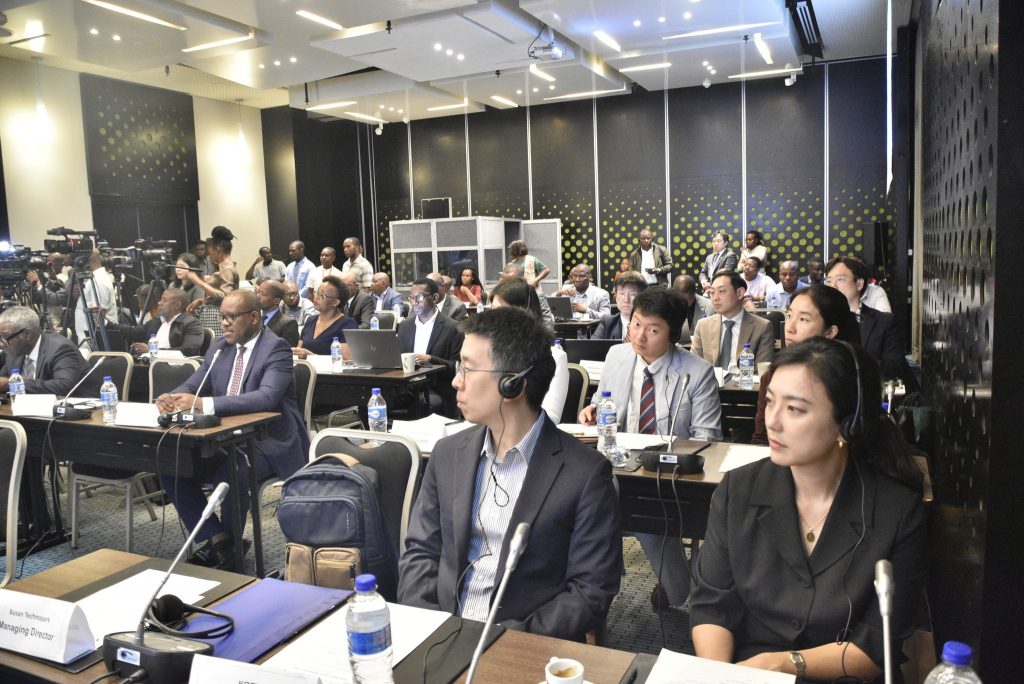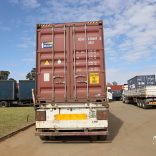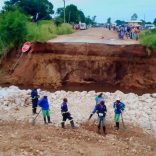‘Malawi, Mozambique border post strikes blow to bureaucracy, corruption’
Mozambique: Drones to monitor weather, extreme events

Photo: Ministério das Comunicações e Transformação Digital
Mozambique’s government will use drones to prevent and monitor extreme weather events in the country, according to a management plan launched on Thursday.
“The project marks an important step in transforming the way our country faces the challenges posed by extreme events of hydro-meteorological origin, which have caused major damage to our population and infrastructure,” said Mozambique’s Minister of Telecommunications and Digital Transformation, Américo Muchanga, during the launch in Maputo of this plan, funded by the African Development Bank (AfDB).
The project will provide the country with four South Korean-produced drones, including a training drone used for mapping, monitoring, and investigating large areas.

According to Minister Muchanga, using this technology to predict and manage the natural disasters that have struck the country will make obtaining accurate, real-time data on the affected areas easier, “preserving human lives”.
“The use of drones as tools for monitoring and mapping affected areas (…) is an innovative solution that promises to transform how we deal with these disasters,” he explained.
Américo Muchanga said the plan also includes training technicians from Mozambique’s disaster management and climate areas to handle these devices.
Akposso Marcelle, from the AfDB, explained that, far beyond technological advances, this project represents a “clear commitment” to the safety of the population: “More than the introduction of technology, [the project aims] fundamentally to save lives, reduce the risk of disasters and improve Mozambique’s response capacity”.
Marcelle added that the project will be implemented in six months after the drones are delivered in mid-May.

On Tuesday, the Mozambican authorities launched a humanitarian assistance plan valued at 48.9 billion meticais (€709.6 million) to support internally displaced people affected by natural disasters and armed insecurity.
The plan “defines actions to respond to internal displacement and poverty reduction in terms of access to basic social services such as education, health, sanitation and water supply, social inclusion and security, as well as economic protection and opportunities”, said the president of the National Institute for Disaster Risk Reduction and Management, Luísa Meque, during the launch of the strategy called “National Action Plan for the Management of Internally Displaced Persons”, in Maputo.
Mozambique is considered one of the countries most severely affected by global climate change. During the rainy season, it experiences cyclical floods and tropical cyclones, as well as prolonged periods of severe drought.
Between December and March alone, the country has already been hit by three cyclones, which, in addition to destroying thousands of homes and infrastructures, have caused around 175 deaths in the north and centre of the country.
According to data from the National Statistics Institute, extreme events such as cyclones and storms caused at least 1,016 deaths in Mozambique between 2019 and 2023, affecting around 4.9 million people.
On the other hand, since October 2017, Cabo Delgado, a northern province rich in gas, has been facing an armed rebellion, which has caused thousands of deaths and a humanitarian crisis, with more than a million people displaced.
In 2024 alone, at least 349 people died in attacks by Islamic extremist groups in the province, an increase of 36%, according to data from the Africa Center for Strategic Studies, an academic institution of the US Department of Defense that analyses conflicts in Africa.












Leave a Reply
Be the First to Comment!
You must be logged in to post a comment.
You must be logged in to post a comment.